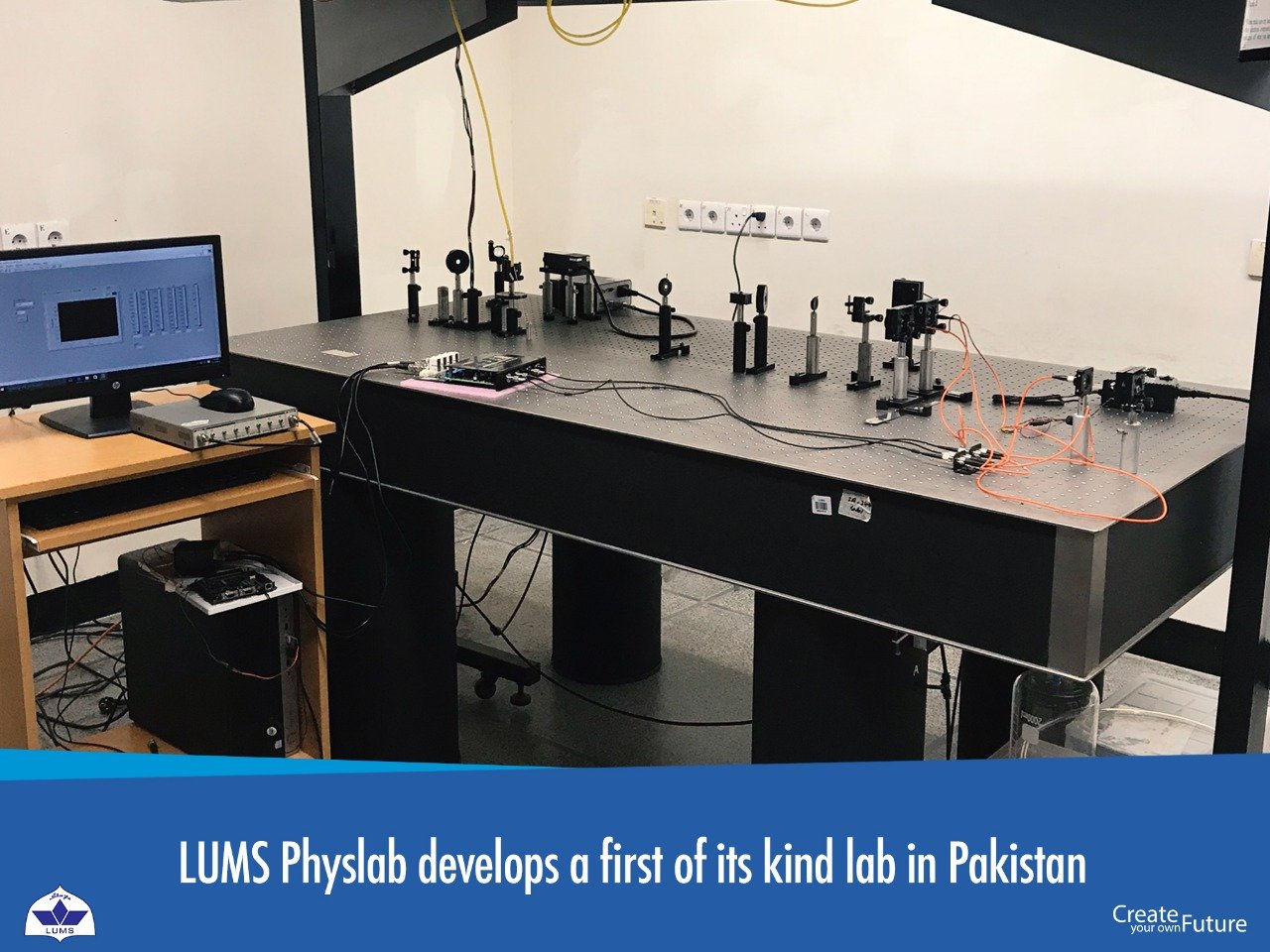Quantum computing holds great importance for the next wave of the information revolution. A number of physical platforms are available to realize quantum bits (qubits), including those based on nuclear magnetic resonance, trapped ions, superconductors, half-spin particles, and single photons. Qubits based on photons are readily accessible at room temperature and hence can be used to perform experiments in the undergraduate laboratory.
The “Single Photon Quantum” initiative was an effort to develop a laboratory incorporating modern, cost-effective versions of some of the experiments that have shaped our modern understanding of quantum physics. These experiments include quantitative demonstrations of the existence of single photons, tests of Bell’s inequalities, single-photon interference, quantum eraser, and quantum state tomography.

Hamza Waseem and Faizan-e-Elahi, two students of electrical engineering in UET Lahore, converted their deep sense of deprivation of formal education in physics to a craving for experimenting with single photons. After a year and a half of dedicated effort, struggling between coursework at their parent institution and the tough challenges, this group of students working in LUMS Physics lab managed to complete a suite of nine fundamental experiments.
Dr. Sabieh Anwer, Associate Professor of Physics at LUMS, who supervise these to students in this brilliant project said that ” For many years I had dreamed of making a laboratory for our students that could demonstrate fundamental facets of quantum physics, quan- information and quan -computing. Though our students do work with SQUIDs, Franck-Hertz tubes and lasers, I was looking for ideas that were more “grainy”, counter-intuitive and quantitative and that could directly relate to quantum interference, entanglement, density matrices, nonlocality and reveal the eerie aspects of quantum physics.
Fortunately, I came across two students, Hamza Waseem and Faizan-e-Elahi and after the hard work of more than one year, we successfully completed this project.
READ ALSO: https://scientiamag.org/all-set-for-lahore-science-mela-2019/


